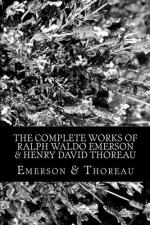|
This section contains 18,730 words (approx. 63 pages at 300 words per page) |

|
SOURCE: “The Anti-Emerson Tradition,” in Emerson and Power: Creative Antagonism in the Nineteenth Century, Northern Illinois University Press, 1996, pp. 19-52.
In the following essay, Lopez traces the critical reception of Emerson's philosophical writings through the decades in an attempt to define his place in American critical thinking.
Melville and Whitman persuasively strive to give us the substance promised by their titles: grass and a whale, earth and the sea are delivered. … But Emerson? Is there not something cloudy at the center of his reputation, something fatally faded about the works he has left us? When, I ask myself, did I last read one of his celebrated essays? How much, indeed, are Emerson's works even assigned in literary courses where the emphasis is not firmly historical?
—John Updike, “Emersonianism” (1984)
In 1982 Alfred Kazin worried that criticism had for too long underestimated or overlooked entirely Ralph Waldo Emerson's “central concern with...
|
This section contains 18,730 words (approx. 63 pages at 300 words per page) |

|


